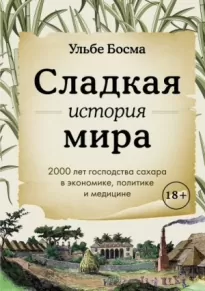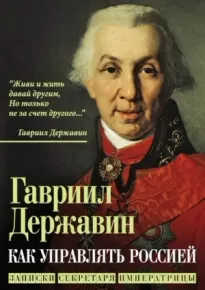Сладкая история мира. 2000 лет господства сахара в экономике, политике и медицине

- Автор: Ульбе Босма
- Жанр: Научная литература / Исторические приключения / История: прочее
Читать книгу "Сладкая история мира. 2000 лет господства сахара в экономике, политике и медицине"
12. Проваленная деколонизация
1 Walter Edward Guinness Moyne, Royal Commission on West India Report (London: Colonial Office, Great Britain, 1945), 422–423. О Французских Антильских островах, см.: Charles Robequain, «Le sucre dans l’Union française,» Annales de Géographie 57, no. 308 (1948): 340.
2 John Wesley Coulter, «The Oahu Sugar Cane Plantation, Waipahu,» Economic Geography 9, no. 1 (1933): 64, 66; James A.Geschwender and Rhonda F.Levine, «Rationalization of Sugar Production in Hawaii, 1946–1960: A Dimension of the Class Struggle,» Social Problems Social Problems 30, no. 3 (1983): 358.
3 Charles Edquist, Capitalism, Socialism and Technology: A Comparative Study of Cuba and Jamaica (London: Zed, 1989), 38–42, 45.
4 Robequain, «Le sucre dans l’Union française,» 333; Joseph T.Butler Jr., «Prisoner of War Labor in the Sugar Cane Fields of Lafourche Parish, Louisiana: 1943–1944,» Louisiana History, 14, no. 3 (1973): 284.
5 James E.Rowan, «Mechanization of the Sugar Beet Industry of Scottsbluff County, Nebraska,» Economic Geography 24, no. 3 (1948): 176, 179; Jim Norris, «Bargaining for Beets: Migrants and Growers in the Red River Valley,» Minnesota History 58, no. 4 (2002): 200, 202, 207.
6 J.A.Mollett, «Capital and Labor in the Hawaiian Sugar Industry since 1870: A Study of Economic Development,» Journal of Farm Economics 44, no. 2 (1962): 386.
7 Edquist, Capitalism, Socialism and Technology, 32–33; Oscar Zanetti, «The Workers’ Movement and Labor Regulation in the Cuban Sugar Industry,» Cuban Studies, no. 25 (1995): 198, 202–203; John Paul Rathbone, The Sugar King of Havana: The Rise and Fall of Julio Lobo, Cuba’s Last Tycoon (New York: Penguin, 2010), 185–186.
8 Alec Wilkinson, Big Sugar: Seasons in the Cane Fields of Florida (New York: Vintage, 1990), 72; George C.Abbott, Sugar (London: Routledge, 1990), 89.
9 David S.Simonett, «Sugar Production in North Queensland,» Economic Geography 30, no. 3 (1954): 231.
10 Deborah Jean Warner, Sweet Stuff: An American History of Sweeteners from Sugar to Sucralose (Washington, DC: Smithsonian Institution Scholarly Press/Rowman and Littlefield, 2011), 78; Wilkinson, Big Sugar, 14–15; John A.Heitmann, «The Beginnings of Big Sugar in Florida, 1920–1945,» Florida Historical Quarterly 77, no. 1 (1998): 61.
11 Albert Viton, The International Sugar Agreements: Promise and Reality (West Lafayette, IN: Purdue University Press, 2004), 31, 34.
12 Viton, The International Sugar Agreements, 84–96.
13 G.Johnson Harry, «Sugar Protectionism and the Export Earnings of Less Developed Countries: Variations on a Theme by R.H.Snape,» Economica 33, no. 129 (1966): 34, 37. См. также: R.H.Snape, «Some Effects of Protection in the World Sugar Industry,» Economica 30, no. 117 (1963): 63–73.
14 Michael Fakhri, Sugar and the Making of International Trade Law (Cambridge: Cambridge University Press, 2017), 199; Abbott, Sugar, 204–206.
15 Pope John XXIII, Mater et magistra, encyclical letter, The Holy See, May 15, 1961, vatican.va/content/john-xxiii/en/encyclicals/documents/hf_j-xxiii_enc_15051961_mater.html (sec. 143).
16 См.: Matthew O.Edel, «Land Reform in Puerto Rico, 1940–1959,» Caribbean Studies 2, no. 3 (1962): 26–60.
17 Abbott, Sugar, 87.
18 Martijn Bakker, Ondernemerschap en Vernieuwing: De Nederlandse Bietsuikerindustrie, 1858–1919 (Amsterdam: NEHA, 1989), 89.
19 См.: Bert Smit and Krijn Poppe, «The Position, Role and Future of Cooperative Sugar Refineries in the EU,» in Proceedings of the 74th International Institute of Sugar Beet Research Congress, Dresden, July 1–3, 2014 (Brussels: International Institute of Sugar Beet Research, 2014).
20 Manfred Pohl, Die Geschichte der Südzucker AG 1926–2001 (Munich: Piper, 2001), 293–294.
21 См.: William R.Sharman, «Louisiana Sugar Co-Ops Help Raise Prosperity,» News for Farmer Cooperatives, March 19, 1965.
22 «The Sugarbeet Growers Association Story,» Red River Valley Sugarbeet Growers Association, дата обращения: 01.02.2022, https://rrvsga.com/our-story/.
23 Ulbe Bosma, The Sugar Plantation in India and Indonesia: Industrial Production, 1770–2010 (Cambridge: Cambridge University Press, 2013), 149–150. 24. Bosma, The Sugar Plantation, 207–208, 234, 241.
24 Bosma, The Sugar Plantation, 207–208, 234, 241.
25 См., например: Peter Singelmann, «The Sugar Industry in Post-Revolutionary Mexico: State Intervention and Private Capital,» Latin American Research Review 28, no. 1 (1993): 61–88; Jack. F.Williams, «Sugar: The Sweetener in Taiwan’s Development,» in China’s Island Frontier Studies in the Historical Geography of Taiwan, ed. Ronald G.Knapp (Honolulu: University of Hawaii Press, 1980), 228–229, 238.
26 James S.Kus, «The Sugar Cane Industry of the Chicama Valley, Peru,» Revista Geográfica, no. 109 (1989): 61–66.
27 Bosma, The Sugar Plantation, 229.
28 Слова Мэнли приводятся по источнику: Carl H.Feuer, Jamaica and the Sugar Worker Cooperatives the Politics of Reform (Boulder, CO: Westview Press, 1984), 177.
29 Bosma, The Sugar Plantation, 239–248, 255, 256.
30 Michael R.Hall, Sugar and Power in the Dominican Republic: Eisenhower, Kennedy, and the Trujillos (Westport, CT: Greenwood Press, 2000), 5, 19, 21–22.
31 Mina Roces, «Kinship Politics in Post-War Philippines: The Lopez Family, 1945–1989,» Modern Asian Studies 34, no. 1 (2000): 203.
32 Eliyahu Ashtor, «Levantine Sugar Industry in the Later Middle Ages: An Example of Technological Decline,» in Technology, Industry and Trade: The Levant versus Europe, 1250–1500, ed. Eliyahu Ashtor and B.Z.K.edar (Hampshire, England: Ashgate, 1992), 240, 242.
33 Vincent A.Mahler, «Britain, the European Community, and the Developing Commonwealth: Dependence, Interdependence, and the Political Economy of Sugar,» International Organization 353 (1981): 477.
34 Clem Seecharan, Sweetening ‘Bitter Sugar’: Jock Campbell, the Booker Reformer in British Guiana, 1934–1966 (Kingston, Jamaica: Ian Randle, 2005), 265.
35 Mahler, «Britain, the European Community,» 480.
36 J.E.Meade, «Mauritius: A Case Study in Malthusian Economics,» Economic Journal 71, no. 283 (1961): 525.
37 Richard L.Bernal, «The Great Depression, Colonial Policy and Industrialization in Jamaica,» Social and Economic Studies 37, nos. 1–2 (1988): 44.
38 Philippe Chalmin, The Making of a Sugar Giant: Tate and Lyle: 1859–1959 (Chur, Switzerland: Harwood Academic, 1990), 354–355; George L.Backford, «The Economics of Agricultural Resource Use and Development in Plantation Economies,» Social and Economic Studies 18, no. 4 (1969): 329, 331.
39 George L.Beckford and Cherita Girvan, «The Dynamics of Growth and the Nature of Metropolitan Plantation Enterprise,» Social and Economic Studies 19, no. 4 (1970): 458–459. Фраза представителей Всемирного банка приводится в источнике: Chalmin, The Making of a Sugar Giant, 375.
40 Al Imfeld, Zucker (Zurich: Unionsverlag, 1986), 72.
41 Michael Moynagh, Brown or White?: A History of the Fiji Sugar Industry, 1873–1973 (Canberra: Australian National University, 1981), 124; David Merrett, «Sugar and Copper: Postcolonial Experiences of Australian Multinationals,» Business History Review 81, no. 2 (2007): 218–223.
42 A.M.O’Connor, «Sugar in Tropical Africa,» Geography 60, no. 1 (1975): 25.
43 См.: Jerry Gosnell, Gallic Thunderbolt: The Story of René Leclézio and Lonrho Sugar Corporation (Durban: Pinetown, 2004).
44 Samuel E.Chambua, «Choice of Technique and Underdevelopment in Tanzania: The Case of Sugar Development Corporation,» Canadian Journal of African Studies 24, no. 1 (1990): 27–28, 30–31; Barbara Dinham and Colin Hines, Agribusiness in Africa (Trenton, NJ: Africa World Press, 1984), 172–173.
45 Abbott, Sugar, 104; Imfeld, Zucker, 60–63.
46 Tijo Salverda, «Sugar, Sea and Power: How Franco-Mauritians Balance Continuity and Creeping Decline of Their Elite Position» (PhD diss., Vrije Universiteit Amsterdam, 2010), 126.
47 «The Recovery of Taiwan Sugar Industry,» Taiwan Today, March 1, 1952, https://taiwantoday.tw/news.php?unit=29,45&post=36816.
48 Tom Barry, Beth Wood, and Deb Preusch, The Other Side of Paradise: Foreign Control in the Caribbean (New York: Grove Press, 1984), 55–74 (слова Вичини приводятся на с. 74).
49 Roces, «Kinship Politics,» 190, 194, 195.
50 Salverda, «Sugar, Sea and Power,» 119.
51 Grant H.Cornwell and Eve W. Stoddard, «Reading Sugar Mill Ruins: ‘The Island Nobody Spoiled’ and Other Fantasies of Colonial Desire,» South Atlantic Review 66, no. 2 (2001): 137.
52 Jorge F.Perez-Lopez, «Cuban-Soviet Sugar Trade: Price and Subsidy Issues,» Bulletin of Latin American Research 7, no. 1 (1988): 143; Gail M.Hollander, Raising Cane in the ’Glades: The Global Sugar Trade and the Transformation of Florida (Chicago: University of Chicago Press, 2009), 166.
53 Chalmin, The Making of a Sugar Giant, 474; Ben Richardson, Sugar (Cambridge: Polity, 2015), 76–77.
54 Thomas J.DiLorenzo, Vincent M.Sementilli, and Lawrence Southwick, «The Lomé Sugar Protocol: Increased Dependency for Fiji and Other ACP States,» Review of Social Economy 41, no. 1 (1983): 37–38.
55 Pohl, Die Geschichte, 295–300, 313.
56 Pohl, Die Geschichte, 301.
57 D.Gale Johnson, The Sugar Program: Large Costs and Small Benefits (Washington, DC: American Enterprise for Public Policy, 1974), 9.
58 Harold A.Wolf, «Sugar: Excise Taxes, Tariffs, Quotas, and Program Payments,» Southern Economic Journal 25, no. 4 (1959): 421.
59 David J.Gerber, «The United States Sugar Quota Program: A Study in the Direct Congressional Control of Imports,» Journal of Law&Economics 19, no. 1 (1976): 113, 116.
6 °Cм.: Thomas J.Heston, «Cuba, the United States, and the Sugar Act of 1948: The Failure of Economic Coercion,» Diplomatic History 6, no. 1 (1982): 1–21.
61 Alan Dye and Richard Sicotte, «U.S.-Cuban Trade Cooperation and Its Unraveling,» Business and Economic History 28, no. 2 (1999): 28. См. также: Willard W.Radell, Cuban-Soviet Sugar Trade of Large Cuban Sugar Factories in the 1984 ‘Zafra,’ Cuban Studies 17 (1987): 141–155.
62 Thomas A.Becnel, «Fulbright of Arkansas v. Ellender of Louisiana: The Politics of Sugar and Rice, 1937–1974,» Arkansas Historical Quarterly 43, no. 4 (1984): 301.
63 Thomas H.Bates, «The Long-Run Efficiency of United States Sugar Policy,» American Journal of Agricultural Economics 50, no. 3 (1968): 525; Daniel M.Berman and Robert Heineman, «Lobbying by Foreign Governments on the Sugar Act Amendments of 1962,» Law and Contemporary Problems 28, no. 2 (1963): 417.
64 Berman and Heineman, «Lobbying,» 423–425.
65 Johnson, The Sugar Program, 58, 76.
66 Michael S.Billig, Barons, Brokers, and Buyers: The Institutions and Cultures of Philippine Sugar (Honolulu: University of Hawaii Press, 2003), 91.
67 Raul Fernandez, «Bitter Labour in Sugar Cane Fields,» Labour, Capital and Society 19, no. 2 (1986): 245; Edward A.Evans and Carlton G.Davis, «US Sugar and Sweeteners Markets: Implications for CARICOM Tariff-Rate Quota Holders,» Social and Economic Studies 49, no. 4 (2000): 16; Won W.Koo, «Alternative U.S. and EU Sugar Trade Liberalization Policies and Their Implications,» Review of Agricultural Economics 24, no. 2 (2002): 350.
68 Brent Borrell and Ronald C.Duncan, «A Survey of the Costs of World Sugar Policies,» World Bank Research Observer 7, no. 2 (1992): 172.
69 Scott B.MacDonald and F.Joseph Demetrius, «The Caribbean Sugar Crisis: Consequences and Challenges,» Journal of Interamerican Studies and World Affairs. 28, no. 1 (1986): 44; Julie Lynn Coronado and Raymond Robertson, «Inter-American Development and the NAFTA: Implications of Liberalized Trade for the Caribbean Sugar Industry,» Caribbean Studies 29, no. 1 (1996): 128–129.
70 Billig, Barons, 68.
71 Serge Cherniguin, «The Sugar Workers of Negros, Philippines,» Community Development Journal 23, no. 3 (1988): 194.
72 Borrell and Duncan, «A Survey of the Costs,» 176–178; MacDonald and Demetrius, «The Caribbean Sugar Crisis,» 41–42.
73 Pamela Richardson-Ngwenya, «Situated Knowledge and the EU Sugar Reform: A Caribbean Life History,» Area 45, no. 2 (2013): 190.
74 Michael S.Billig, «The Rationality of Growing Sugar in Negros,» Philippine Studies 40, no. 2 (1992): 165.
75 Philippe Grenier, «The Alcohol Plan and the Development of Northeast Brazil,» GeoJournal 11, no. 1 (1985): 64; C.R.Dabat, «Sugar Cane ‘Plantations’ in Pernambuco: From ‘Natural Vocation’ to Ethanol Production,» Review (Fernand Braudel Center) 34, nos. 1–2 (2011): 134; Barbara Nunberg, «Structural Change and State Policy: The Politics of Sugar in Brazil since 1964,» Latin American Research Review. 21, no. 2 (1986): 59.
76 См.: Madhav Godbole, «Co-Operative Sugar Factories in Maharashtra: Case for a Fresh Look,» Economic and Political Weekly 35, no. 6 (2000): 420–424.
77 Bosma, The Sugar Plantation, 248–249, 260; «About Us,» Birla Sugar, дата обращения: 17.04.2022, https://www.indiamart.com/birla-sugarkolkata/aboutus.html.
78 Donna L.Chollett, «From Sugar to Blackberries: Restructuring Agro-Export Production in Michoacán, Mexico,» Latin American Perspectives 36, no. 3 (2009): 82. См. также: Donna L.Chollett, «Renouncing the Mexican Revolution: Double Jeopardy within the Sugar Sector,» Urban Anthropology and Studies of Cultural Systems and World Economic Development 23, nos. 2–3 (1994): 121–169.





